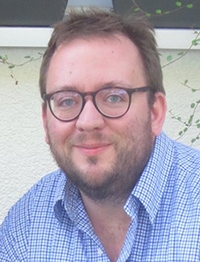Event

The Corpus Platonicum is one of the most well-known and most influential works of ancient literature. Yet, it still has unresolved challenges regarding its tetralogical form and the authorship of some of the works. In addition, tracing its ideas through two millennia of Greek and Latin literature can be a daunting task that not only requires intimate knowledge of the over 500,000-words-long Corpus Platonicum, but also the reading and manual analysis of several hundred-million words of Greek and Latin. The last decade of Natural Language Processing research, however, has developed promising automated analytical methods to process and classify huge amounts of texts. This research can now be put to use to disclose complex patterns and intratexuality in the Corpus Platonicum and additionally can help train a machine to detect platonic thinking in a huge corpus of unclassified ancient text. The talk ‘Preparing Plato: Corpus-Building for Complex Computational Analysis’ focuses on the preparation of the Corpus Platonicum, so it can be digitally explored and will showcase some exploration methods.
